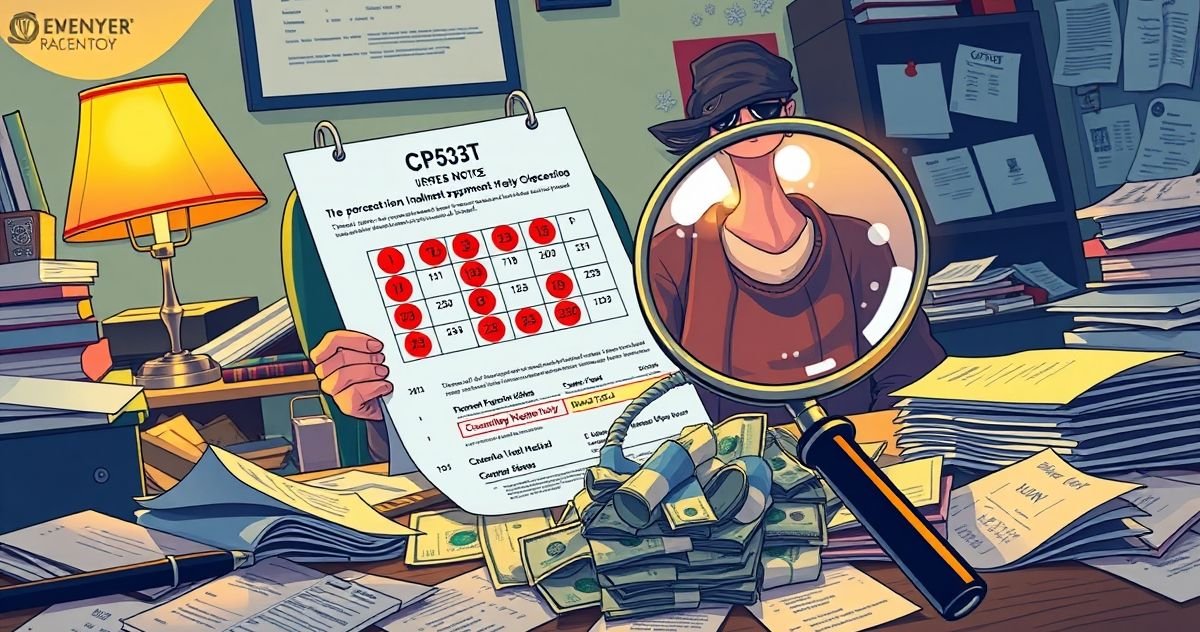Understanding the CP523T Notice
The CP523T Notice is a crucial communication tool used by the IRS to remind taxpayers who have entered into an installment agreement about their responsibility to adhere to the terms. This notice primarily serves to inform the taxpayer of important details regarding their payment plan, ensuring they continue to make timely and accurate payments to avoid default and potential penalties.
Purpose of the CP523T Notice
The CP523T Notice’s primary purpose is to act as a reminder for taxpayers regarding their current installment agreement with the IRS. It is not an indication that anything is amiss, but it does emphasize the importance of continuing to meet the agreed-upon payment schedule. By doing so, taxpayers can avoid breaches that may lead to the installment agreement’s termination and consequent penalties.
Key Features of the CP523T Notice
- Installment Details: The notice will outline the specifics of the taxpayer’s payment plan, including the total amount due, the amount of each installment, and the remaining balance.
- Payment Schedule: It specifies the due dates for upcoming payments, which helps in maintaining compliance with the payment timeline stipulated in the agreement.
- Contact Information: The notice provides contact details for taxpayers who may have questions or require clarification from the IRS.
Compliance Requirements
Compliance with the terms outlined in the CP523T Notice is essential. Taxpayers are expected to make timely and full payments as per their installment agreement. Failure to do so could result in a default, leading to the possible termination of the agreement.
Penalties for Non-Compliance
If taxpayers do not adhere to their installment plan after receiving a CP523T Notice, the IRS may impose several penalties:
- Interest and Late Fees: Missed payments may incur additional interest and late fees, increasing the overall debt.
- Agreement Termination: Continued non-compliance could result in the termination of the installment agreement, making the full remaining balance immediately due.
- Collections Actions: Once an agreement is terminated, the IRS may initiate collections processes, including liens or levies on the taxpayer’s assets.
Importance of the CP523T Notice
The CP523T Notice plays a significant role in tax resolution and financial compliance. For many taxpayers, maintaining an installment agreement is the best option for managing and paying down their tax obligations over time. This notice ensures that taxpayers remain aware of their responsibilities and helps prevent accidental defaults that could lead to more severe financial repercussions.
Understanding and responding appropriately to a CP523T Notice enables taxpayers to stay in good standing with the IRS. It acts as both a reminder and a proactive step in ensuring taxpayers do not inadvertently fall behind on their obligations, ultimately supporting better financial stability and avoiding legal actions or penalties.
Conclusion
The CP523T Notice is more than just a reminder; it is an essential document for taxpayers engaged in IRS installment agreements. By understanding and abiding by the details outlined in the notice, taxpayers can manage their tax debts efficiently, avoid potential penalties, and maintain a positive rapport with tax authorities. Responding effectively to this notice is critical to sustaining financial health and preventing complications from tax non-compliance.



